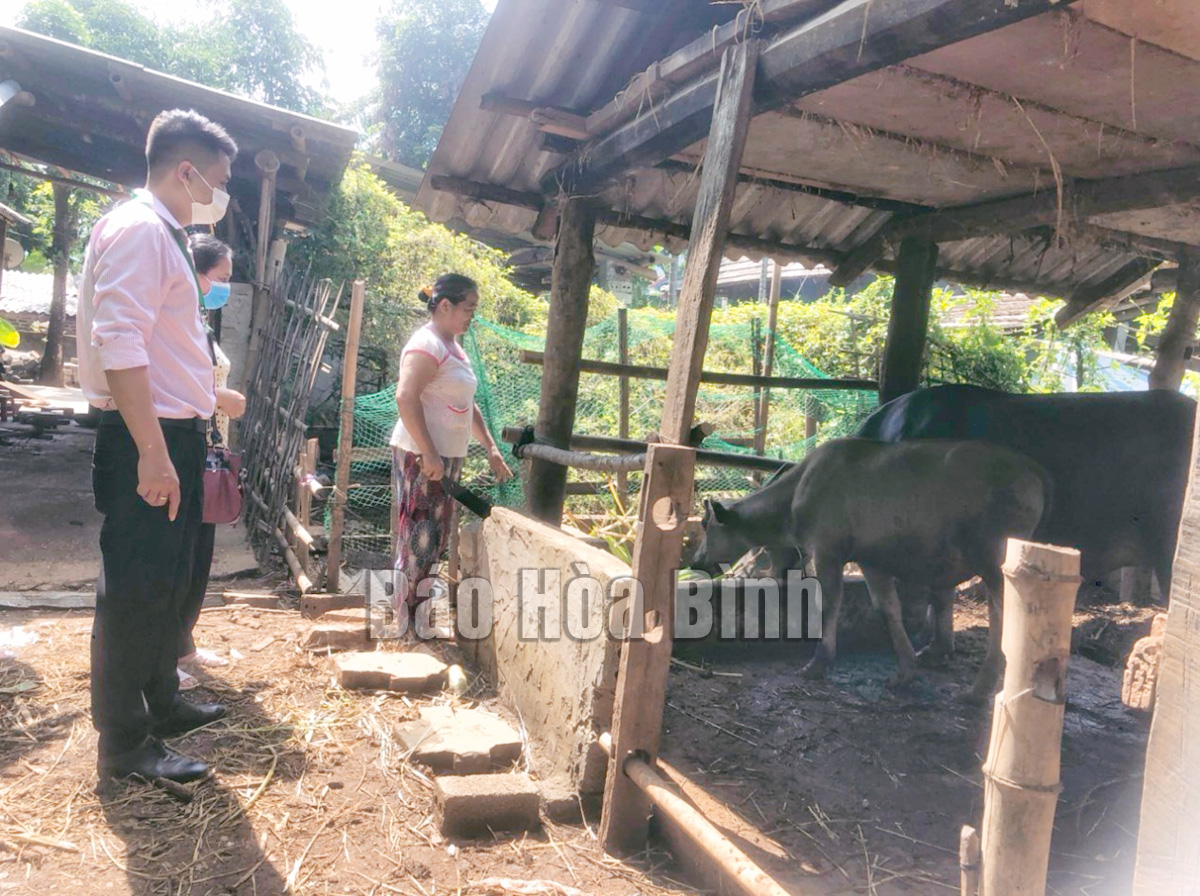
(HBO) – From the start of this year, Mai Chau district of Hoa Binh has more than 3,000 poor households and policy beneficiaries eligible for preferential credits to improve their economic conditions.
The social policy credit programme has served as a ‘midwife’ for hunger eradication and poverty alleviation efforts in the mountainous district.
Photo: Staff at a transaction office of the Bank for Social Policy in Mai Chau district examine the use of preferential loan of a family in Hich 2 village of Mai Hich commune.
There is high demand for preferential credits as there are many disadvantaged villages and communes in Mai Chau.
The family of Ha Cong Song was among the poor ones in Hich 2 village of Mai Hich commune. Due to capital shortage, they could only make ends meet on maize and rice cultivation.
After receiving a preferential loan in 2010, Song was able to build stables for cattle. To date, the family has owned two buffaloes and five bulls, enjoying an income of more than 50 million VND (2,170 USD) a year. They successfully escaped poverty.
The social policy credit programme significantly contributes to Mai Chau’s poverty reduction work, with the rate of poor households dropping nearly 3 percent annually.
Director of the transaction office of the Bank for Social Policy in the district Vu Hoai Nam said despite the complicated developments of COVID-19, the bank has exerted efforts to basically complete set targets and timely disburse preferential credits to beneficiaries.
In the first 10 months of 2021, the district mobilised in excess of 30.5 billion VND from social sources, 8.2 percent higher than the target.
Entrusted capital in the locality rose to 741 million VND, meeting the plan.
Outstanding loans under the social policy programme increased by 19.7 billion VND compared to the same period last year, meeting 99.9 percent of the set target.
Total outstanding loans to date has exceeded 311 billion VND. The programme is viewed a leverage in hunger eradication and poverty reduction, as well as plays an important role in the implementation of the national target programme on building new-style rural areas.
For example, the transaction office of the Bank for Social Policy in Mai Chau has paid heed to preferential loans to carry out a programme on clean water and rural hygiene.
Thanks to the programme, nearly 1,000 new clean water works have been built in the district, and rural hygiene is improved.
Nam said that in the coming time, the bank will continue to study the local demand for preferential loans so as to devise appropriate plans. It will roll out efficient programmes for eligible beneficiaries and improve credit quality in the locality./.
In Lac Thuy district, communes have been succeeded in promoting their One Commune-One Product (OCOP) products while others are still struggling to position their typical farming products in market. Some communes in the district still fail to have their products met OCOP programme’s requirements, while others have seen their certifications expired.
The inspectorate agency of Hoa Binh province has issued Official Dispatch No. 1090/TTr-PCTN to provincial departments, agencies, localities, business associations, enterprises, and investors regarding measures to improve informal component indexes of the Provincial Competitiveness Index (PCI).
Hoa Binh is taking concrete steps to improve its investment environment, with a strong focus on supporting businesses, settling obstacles for strategic investors, and creating opportunities for robust development in the coming years.
Under the blazing early summer sun, the construction site of Nhuan Trach Industrial Park (IP) in Luong Son district is abuzz with activities from dawn to dusk, a testament to the determination of the investor to meet their construction targets on schedule.



